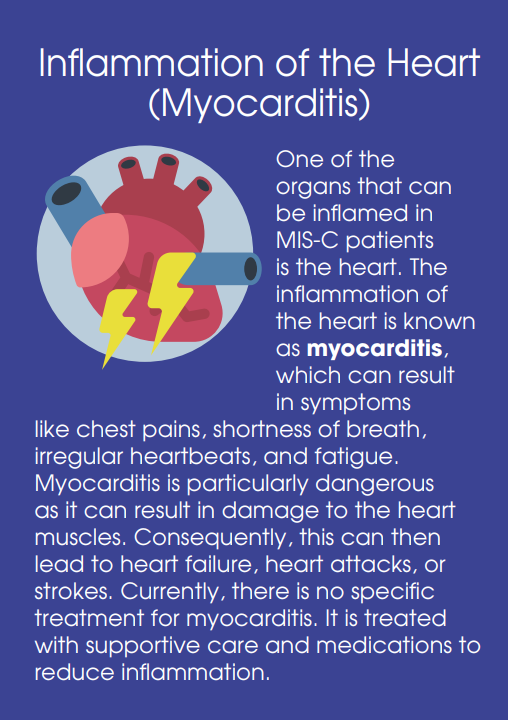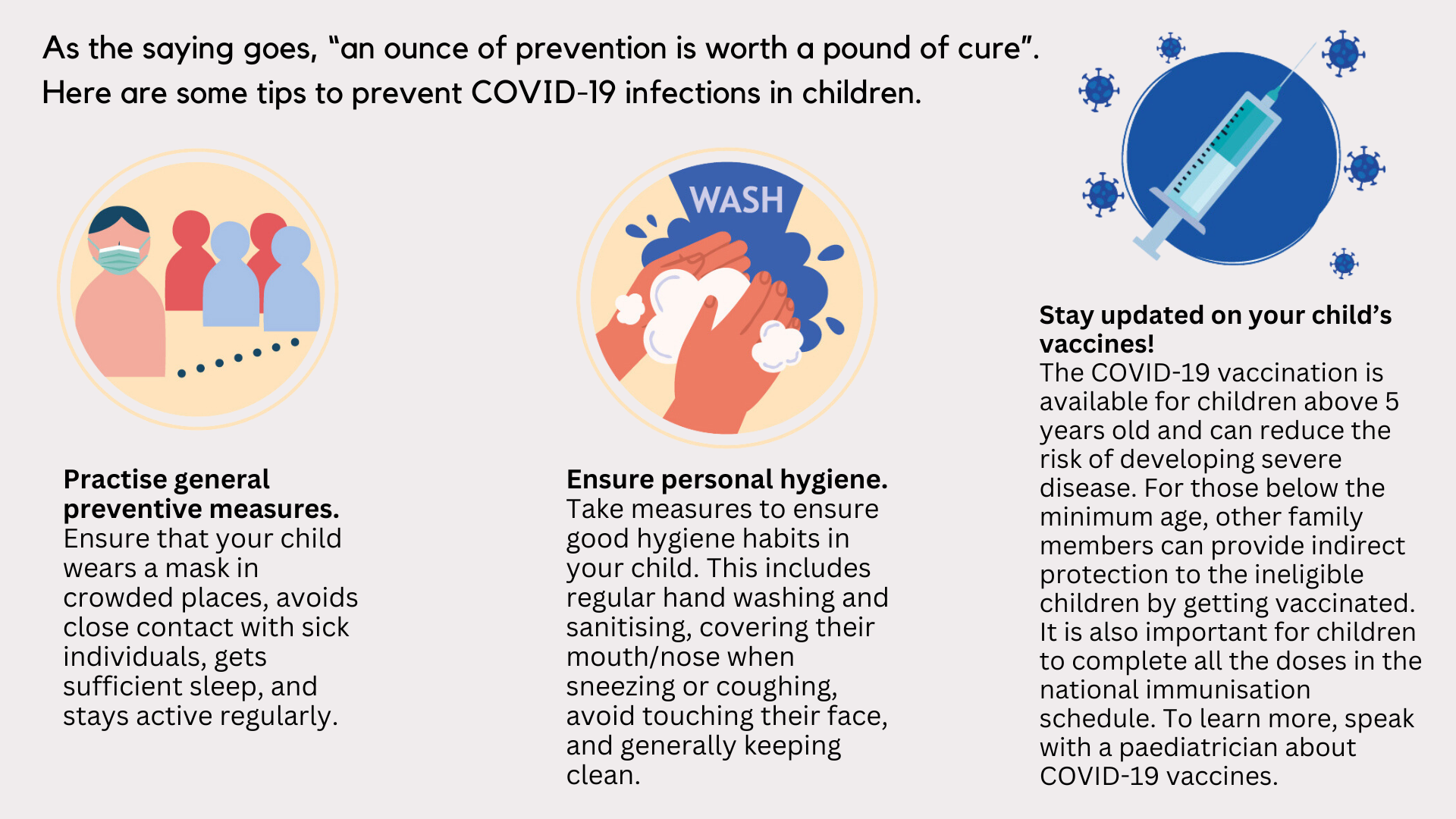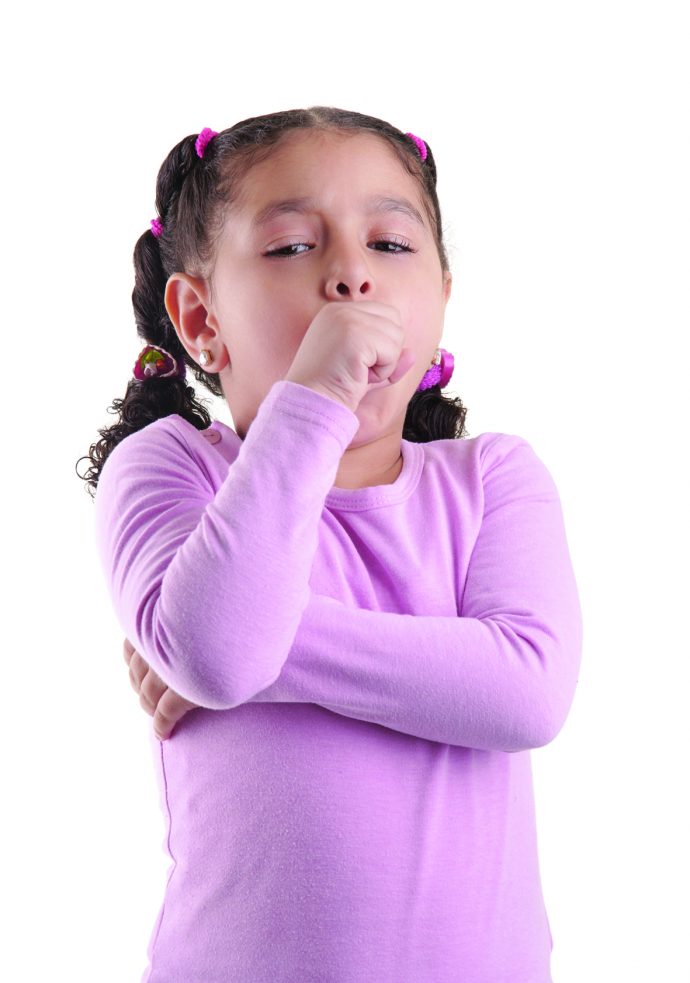Some children infected with COVID-19 can develop severe complications that can be detrimental to their health. Here are some known examples of COVID-19 complications in children.
Multisystem Inflammatory Syndrome in Children (MIS-C)
What is MIS-C?
MIS-C is a rare complication of COVID-19 in children, that is characterised by the inflammation of multiple organ systems (usually two or more), like the heart, kidneys, lungs, brain, and gastrointestinal tract.
Symptoms of MIS-C
- Fever
- Difficulty breathing
- Pressure or pain in the chest
- Pale or blue-coloured skin
- Light-headedness
- Swollen lymph nodes
- Skin rashes
- Stomach pains
- Diarrhoea
- Vomiting
How is it treated?
Currently, there are no specific treatments for MIS-C, but doctors usually provide supportive care and medication to reduce inflammation. Fortunately, MIS-C is not a chronic condition. Affected children are able to recover from MIS-C with proper medical attention.

Long COVID
What is Long COVID?
Long COVID (also known as ‘Post COVID Condition’) can affect any age group, including adults and children. Individuals with Long COVID experience prolonged symptoms, or even develop new ones, up to several months after being infected.
Symptoms of Long COVID
- Fatigue
- Trouble breathing
- General weakness
- Chest pains
- Coughing
- Depression or anxiety
- Heart palpitations
- Muscle pains
- Loss of smell or taste
How is it treated?
There is also no single effective treatment for Long COVID. Instead, doctors focus on treating the symptoms using medications. In addition to this, specialists are often brought in to evaluate certain symptoms (e.g. children with chest pains usually see cardiologists). Fortunately, children tend to recover faster than adults.
Tips to Prevent COVID-19 in Children

In conclusion, COVID-19 infections are often mild in children. However, a small percentage of infected children can develop severe complications like MIS-C and Long COVID, especially those with chronic diseases or a weakened immune system. As parents, it is important that we protect our little ones as best we can. In this case, that involves understanding the potential complications and how we can play a role in preventing diseases.



Comments